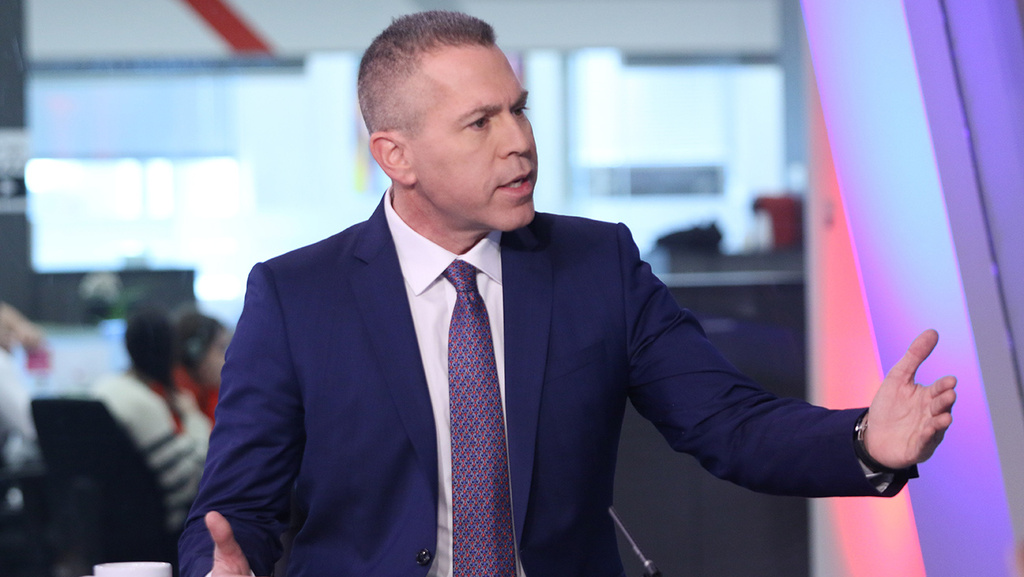Getting your Trinity Audio player ready...
Democratic candidate Joe Biden will be the 46th president of the United States, marking a new era for the U.S. and for Israel.
On January 20, 2021, the term of Donald Trump comes to an end, bringing with it an end to the days in which Prime Minister Benjamin Netanyahu could travel the world with a puffed up chest thanks to the absolute backing of the American president.
6 View gallery
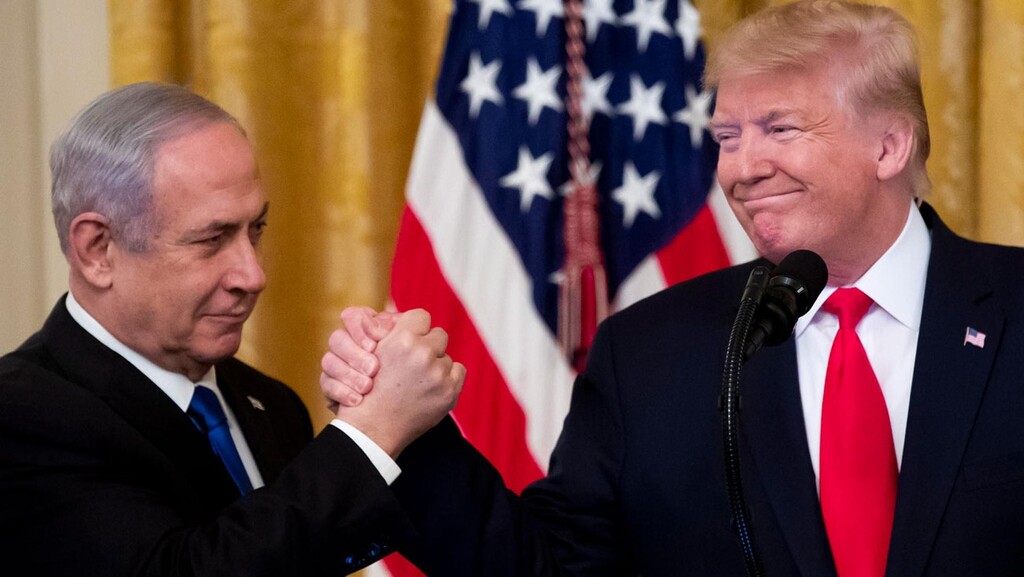

Prime Minister Benjamin Netanyahu and U.S. President Donald Trump clasp hands during the White House announcement on its Mideast peace plan, January 2020
(Photo: EPA)
And while the days of unlimited U.S. support are seemingly over, Biden's time in the White House will not necessarily mean the incessant conflict between Washington and Jerusalem that was on display during the Obama era.
Biden has no interest in confronting Israel. The long-standing personal friendship between Biden and Netanyahu will allow the prime minister (if he acts carefully and responsibly) to engage in dignified dialogue with the White House of Biden and Vice President-elect Kamala Harris.
Biden’s term will not be a walk in the park for Israel. There is still a lot of anger towards Netanyahu both in the Democratic Party and Biden's inner circle over to his hostility to Obama and his friendship with Trump.
6 View gallery
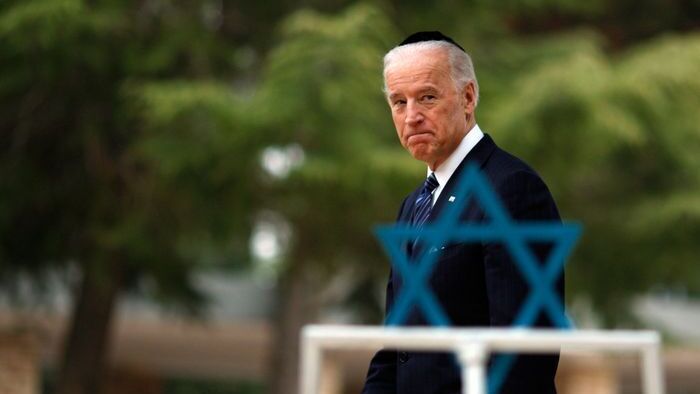

Then-Vice President Joe Biden walks through Mount Herzl cemetery in Jerusalem during a 2016 visit to Israel
(Photo: Getty Images)
The main concern is that the friction could escalate due to clashes with the people Biden appoints to deal with Israel, the Mideast peace process and Iran.
Some of these people will no doubt be members of the Obama administration and they will not easily forget Netanyahu’s 2015 speech to Congress, in which he slammed the agreement with Iran laboriously brokered by the White House.
The issues of Others in Biden's administration will no doubt remember the incident in March 2010, when then-interior minister Eli Yishai (Shas) announced the construction of 1,600 settlement housing units as Biden landed in Israel.
The move was perceived as Netanyahu knifing Biden in the back and as an attempt to sabotage the vice president's visit.
Biden also played a part in advancing Security Council Resolution 2334 on the illegality of Israel's West Bank settlements in the West Bank, which was adopted by the UN on January 20, 2017 - the day Trump entered the White House.
6 View gallery
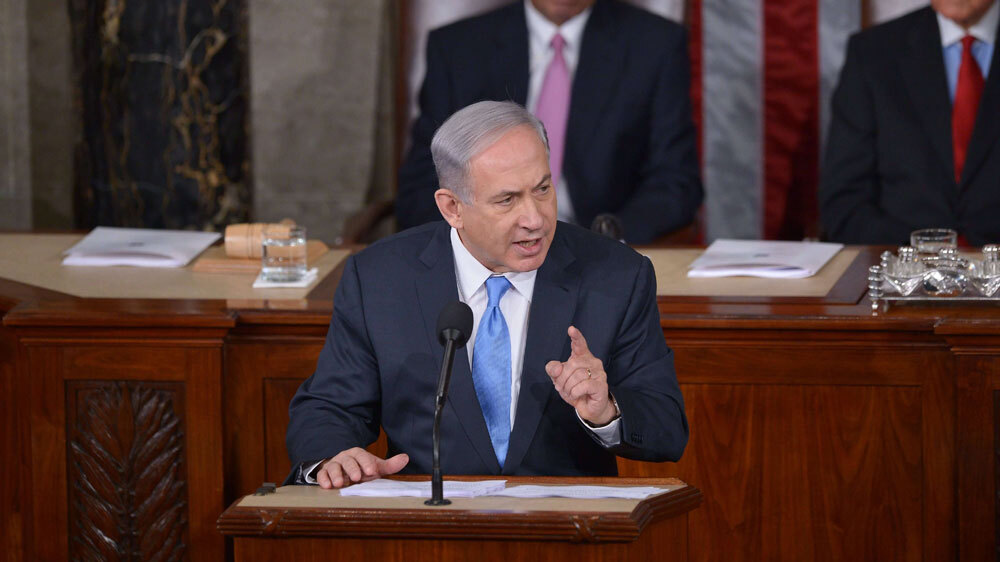

Benjamin Netanyahu slams the Iran nuclear deal in a 2015 speech to the U.S. Congress
(Photo: AFP)
It was none other than Joe Biden who personally persuaded several leaders including the president of Ukraine to support the proposal, which triggered a crisis between Jerusalem and Kiev.
Biden was also the one who persuaded New Zealand to submit the resolution to the UN Security Council, after Egyptian President Abdel Fattah al-Sisi withdrew his support due to signals from Israel that he should not go against Trump.
Biden, along with Susan Rice, Obama's then-national security adviser, were responsible for a decision seen as the Obama administration’s swan song.
A source familiar with Israel-U.S. relations says that Biden's term as president could see repeated criticism of Israel’s actions akin to that of the Obama era. And while the approach may be more subtle, the Biden administration will not support construction of Israeli settlements or other steps it perceives as harmful to the two-state solution.
One of the steps Israel will take with Biden's inauguration is to replace its current ambassador to the U.S. Ron Dermer, a former Republican operative who is persona non grata among Democrats.
His replacement will be Israel's recently installed ambassador to the UN Gilad Erdan, who will continue to hold both positions and work extremely hard to mend Israel’s relationship with the Democrats.
Despite the concerns, one thing is undisputed: Biden is a great friend of Israel and believes in the American commitment to Israel's security and to maintaining its qualitative military edge.
The Israeli-Palestinian issue is close to Biden’s heart, and while he wishes to resolve the crisis, he is not expected to be in a hurry to try to bring the Palestinians back to the negotiating table, mainly due to the political, economic and coronavirus chaos in Israel and the fact that Mahmoud Abbas’ term as Palestinian president is nearing its end.
The assessment in the Biden campaign is that the president-elect will order the re-establishment of the American consulate in East Jerusalem that was responsible for relations with the Palestinians.
Biden also intends to renew American financial aid to the Palestinians that was halted by Trump, while also reopening the Palestinian embassy in Washington. All of this is aimed restoring Palestinian confidence in the U.S.
And while Biden does not intend to return the American embassy from Jerusalem to Tel Aviv, it is still unclear if the ambassador’s residence will remain in the capital.
6 View gallery
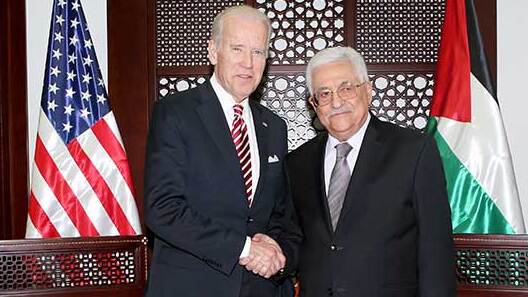

Then-U.S. Vice President Joe Biden meeting with Palestinian President Mahmoud Abbas in 2016
(Photo: Archive)
Biden is a vocal advocate of the two-state solution and will try to take steps to encourage its fruition the solution come to fruition and act to condemn unilateral steps.
Biden is expected to call on Israel to refrain from expanding the settlements and not talk about annexation anymore - while asking the Palestinians to refrain from taking such negative measures such as the delegitimization of Israel, and the payment of wages to terrorists.
Biden will also most definitely wash his hands from Trump’s peace plan which made the Palestinians irrelevant, and may start a new Israeli-Palestinian dialogue.
Another burning issue is Iran. Biden has previously stated that if Tehran returns to full compliance with the nuclear deal, the U.S. will rejoin the agreement and lift sanctions. Only then will his government negotiate with Tehran.
Israel believes Biden will aim to be tougher than Obama on the Iranians and try to make improvements to the nuclear agreement. Even so, Jerusalem fears that the Iranians will not accept any changes to the agreement and will only benefit from the reversal of sanctions.
6 View gallery
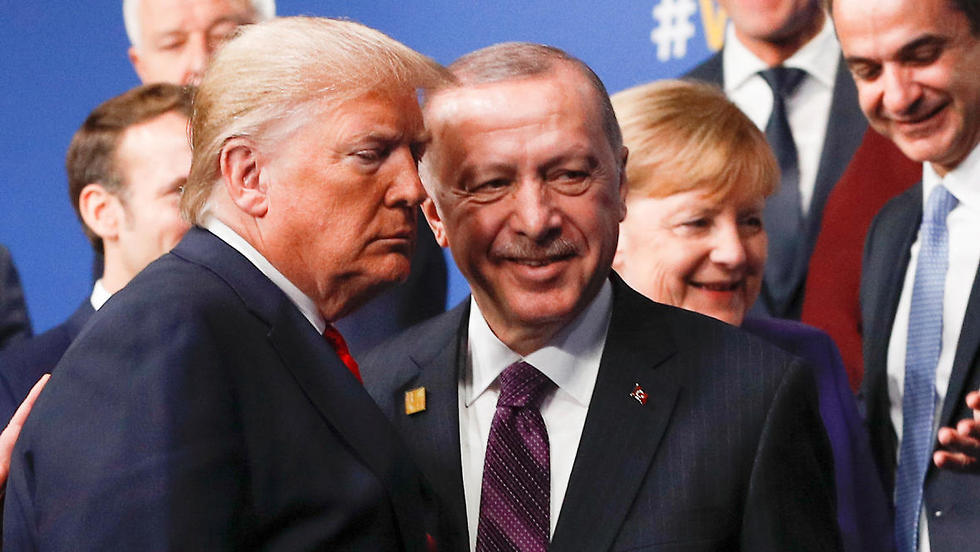

U.S. President Donald Trump and Turkish counterpart Recep Tayyip Erdogan
(Photo: Reuters)
Israel also believes that Biden will work to extend the Iran nuclear agreement - which is set to expire within the next few years - by a few decades. It is doubtful the Iranians will agree to this either.
Regarding Turkey, Israel assesses that Biden will also be far tougher on President Recep Tayyip Erdogan than Trump, who more or less embraced him.
An exacerbation of relations between the president-elect and his Turkish counterpart can be expected. Biden will place more emphasis on human rights, freedom of expression and freedom of the press than Trump.


